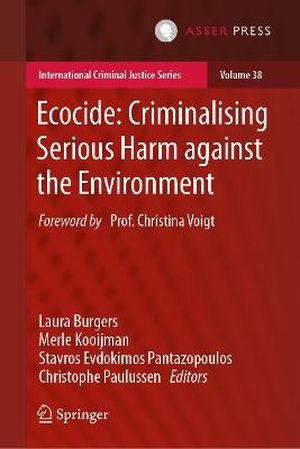
This book explores the concept of ecocide and critically assesses how the criminalisation of serious harm against the environment fits within international criminal law broadly construed. To this end, the book's chapters address four key questions: constitutes ecocide, can it be prosecuted, should it be prosecuted, and are its perpetrators and victims? In addition to more practice-focused chapters, including case studies on the Netherlands and Ukraine, the publication analyses and challenges fundamental conceptual issues, including the binary opposition between 'anthropocentrism' and 'ecocentrism' in the ecocide discourse. The reader is confronted with and forced to reflect on intriguing questions such as: is it fair to only prosecute representatives of large business corporations and state officials, while letting consumers of polluting products off the hook? And does the legal framework of the International Criminal Court (ICC) allow for the recognition of nonhumans, such as the environment, as victims of ecocide?
This edited volume is interesting for students, teachers, scholars, practitioners, policymakers and legislators. It aims to assist in fleshing out crucial parameters in the lead-up to the potential inclusion of the fifth core international crime in the Rome Statute of the ICC, as well as in relation to efforts to criminalise ecocide at the national level - both of which have gained unprecedented momentum in recent times.